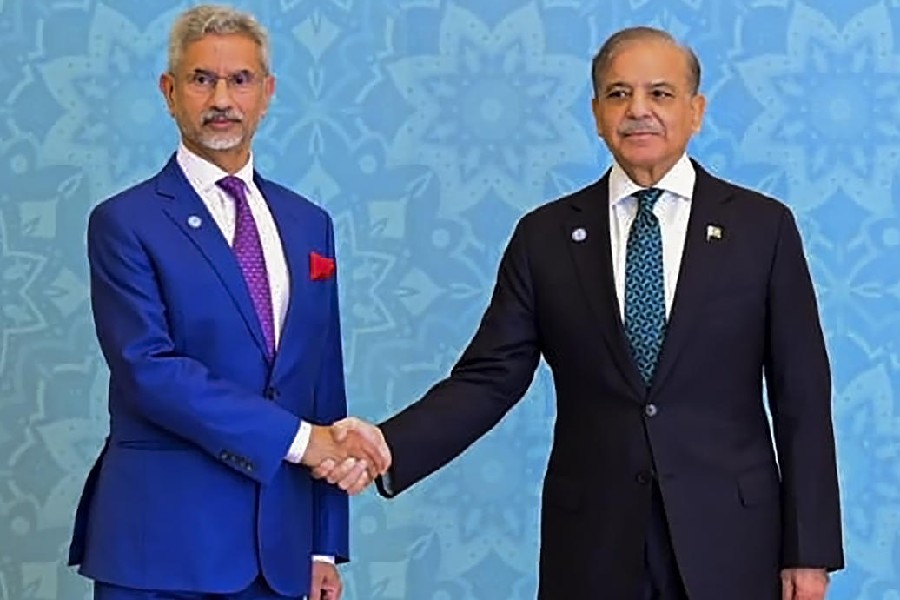External affairs minister S. Jaishankar on Wednesday appeared to pointedly address China and Pakistan at the Shanghai Cooperation Organisation (SCO) meeting in Islamabad when he spoke out against unilateral agendas in connectivity projects and underscored that terrorism, extremism and separatism are unlikely to encourage trade, energy flows and people-to-people exchanges.
He did not name any country while delivering India’s national statement at the 23rd meeting of the SCO Council of Heads of Government in Islamabad but the import of his words was not lost on anyone. The SCO format does not allow member countries to raise bilateral issues, so Jaishankar brought issues of concern in a generic manner.
“Cooperation must be based on mutual respect and sovereign equality. It should recognise territorial integrity and sovereignty. It must be built on genuine partnerships, not unilateral agendas. It cannot progress if we cherry-pick global practices, especially of trade and transit,” he said.
This appeared to be an oblique reference to China’s Belt and Road Initiative — a global infrastructure project across continents — that runs through Pakistan-occupied Kashmir. India has opted out of this connectivity project in protest against the route running through PoK in violation of India’s territorial integrity.
Jaishankar said: “If activities across borders are characterised by terrorism, extremism and separatism, they are hardly likely to encourage trade, energy flows, connectivity and people-to-people exchanges in parallel.” This was a message to Pakistan, which has been seeking resumption of bilateral talks with India. New Delhi, for its part, has maintained that talks and terror cannot go together.
This is the first time in nine years that a senior minister has travelled from India to Pakistan. However, India made it clear that he was in Islamabad purely for the multilateral SCO meeting and there is no bilateral component to the visit, which saw Jaishankar interact with Pakistan Prime Minister Shehbaz Sharif briefly on two occasions — at a dinner on Tuesday night and ahead of the meeting on Wednesday morning.
Having made his point on unilateral connectivity projects and terrorism, Jaishankar sought to drive home the benefits to all if the SCO charter is adhered to by every member country in letter and spirit.
“Industrial cooperation can enhance competitiveness and expand labour markets. MSME collaboration has positive implications for employment. Our collective endeavours can expand resources and encourage investment flows. Business communities will profit through larger networks. Collaborative connectivity can create new efficiencies. The world of logistics, as indeed of energy, could undergo a sea change.
“Environmental protection and climate action are ready domains for mutually beneficial exchanges. The treatment of infectious and non-infectious diseases will benefit from accessible and affordable pharmaceutical capabilities. Whether it is health, food or energy security, we are all clearly better off working together,” he said.











